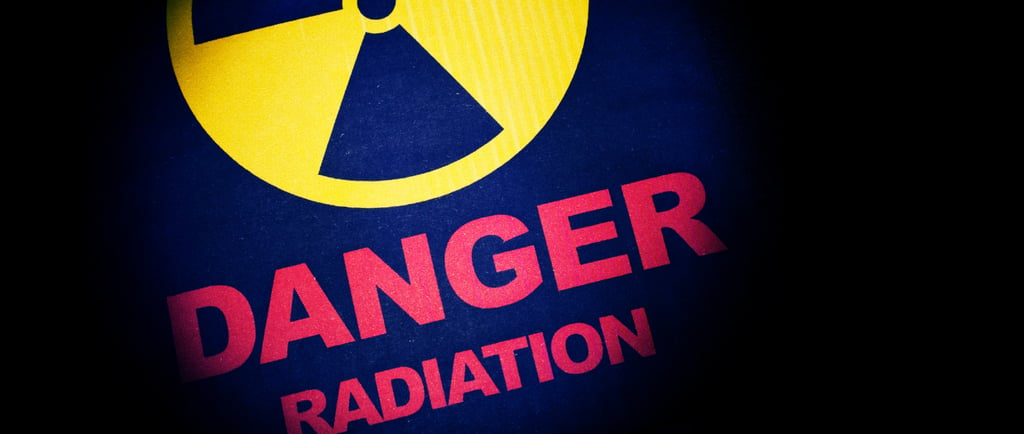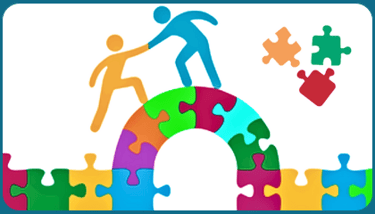Unintended Consequences: Understanding the Ripple Effects of Our Actions
Understanding unintended consequences and the role they play in keeping us trapped in a broken culture.
PARADIGM SHIFT
Mark Boatwright-Frost
9/30/20244 min read


The Concept of Unintended Consequences
The term "unintended consequences" refers to outcomes that arise from actions or decisions that were not anticipated or foreseen. This concept has deep historical roots, often attributed to the work of sociologist Robert K. Merton in the mid-20th century. He articulated that decisions made with specific intentions can lead to effects that diverge significantly from the intended goal. As we navigate through life, whether in personal choices, economic decisions, or public policy implementations, the potential for such unintended outcomes is omnipresent. This concept, therefore, serves as an essential lens through which we can evaluate the implications of our actions.
Unintended consequences are particularly relevant across various fields. In economics, for instance, legislation aimed at improving economic stability can sometimes lead to market distortions that hinder the very progress it sought to promote. Similarly, in public policy, measures designed to enhance public safety can inadvertently result in increased surveillance, raising ethical concerns about privacy. These examples illustrate how well-meaning intentions can have ripple effects that complicate the initial objectives.
The distinction between intended and unintended consequences is crucial for effective problem-solving and critical thinking. Intended consequences are the anticipated results of actions, while unintended consequences encompass both positive and negative outcomes that were not foreseen. Understanding this difference allows individuals and organizations to approach decision-making with a critical eye, weighing potential risks and rewards more judiciously. Recognizing the multifaceted nature of human behavior informs our actions and encourages a more nuanced consideration of how decisions resonate beyond the immediate context. This deeper understanding prepares us to grapple with the complexities inherent in the consequences of our actions.
The Role of Assumptions and Critical Thinking
Human cognition often relies on assumptions as a means to navigate complex situations, particularly when faced with uncertainty or incomplete information. This tendency can lead to significant misunderstandings, as individuals may fill gaps in knowledge with preconceived notions rather than seeking a deeper understanding. For instance, when presented with ambiguous data, the brain instinctively tries to make connections that are not always valid, thereby forming opinions or conclusions based on tenuous evidence.
Critical thinking serves as a vital antidote to the pitfalls of assumption-driven reasoning. It encourages individuals to question the information they encounter, analyze the validity of evidence, and rigorously evaluate their beliefs. Engaging in critical thinking enables individuals to recognize their biases and the limitations of their knowledge, leading to more informed and accurate conclusions. This heightened awareness is particularly crucial in an era where misinformation proliferates and conspiracy theories gain traction, often rooted in unchallenged assumptions.
To enhance critical thinking skills, individuals can adopt several practical strategies. Firstly, cultivating a habit of questioning is essential; instead of accepting information at face value, one should actively seek answers to "why" and "how" questions. Analyzing multiple sources of information before forming a belief also aids in developing a well-rounded perspective. Furthermore, engaging in discussions with diverse viewpoints fosters open-mindedness, helping to identify and mitigate one’s own assumptions.
Lastly, verifying evidence through fact-checking resources can provide clarity and diminish the space for erroneous assumptions. By emphasizing these critical thinking techniques, individuals can cultivate a more discerning approach to information intake, ultimately reducing the potential for misunderstanding and ill-informed beliefs. The interplay between assumptions and critical thinking is integral to understanding the ripple effects of our actions, highlighting the importance of thorough evaluation in our decision-making processes.
Cascading Effects of Unchecked Consequences
Unintended consequences, particularly those that remain unchecked, can often instigate far-reaching and complex issues across various sectors. This phenomenon is notably observable in the realm of education, which has evolved significantly due to industrialism. Policies and decisions aimed at improving educational outcomes have occasionally been formulated without sufficient foresight, resulting in consequences that extend beyond the immediate framework.
One illustrative example is the implementation of standardized testing in educational systems. Although the intention was to enhance learning outcomes and ensure accountability, these assessments frequently led to a narrow focus on test preparation. Consequently, educators often prioritised specific subject areas at the expense of a more holistic educational experience. This shift inadvertently diminished critical thinking and creativity in students, as the educational landscape became overly focused on performance metrics rather than comprehensive development.
Moreover, this narrowing effect can escalate into broader societal issues. Students trained primarily on standardized tests may struggle to adapt in dynamic work environments that require creative problem-solving and collaboration. This disconnect may lead to a workforce ill-equipped to meet the challenges of modern industries, perpetuating cycles of unemployment or decreased job satisfaction. Thus, what began as an effort to improve education inadvertently contributes to larger economic and social dilemmas.
The complexity of these cascading effects emphasizes the need for vigilance and adaptability in decision-making processes. Stakeholders, from policymakers to educators, must recognize the interconnectedness of their actions and consider the broader implications of their choices. This awareness can help mitigate the risk of creating further complications in educational systems and beyond, ensuring that strategies and initiatives are designed with both immediate and long-term consequences taken into account.
Navigating Complexity: Strategies for Awareness and Adaptation
As we navigate an increasingly complex world, it is essential for individuals and organizations to cultivate awareness of the potential unintended consequences that can arise from their actions. The first step in this process involves adopting a proactive approach to problem-solving. By actively considering multiple perspectives and seeking input from various stakeholders, decision-makers can gain a more holistic understanding of the impacts their choices may create, both intended and unintended.
Engaging in collaborative discussions is another effective strategy for recognizing potential ripple effects. Facilitating open dialogues among team members, partners, and community members encourages the sharing of diverse insights and experiences. This inclusive approach can highlight potential consequences that may not have been initially apparent, allowing for a more comprehensive evaluation of possible outcomes. Such discussions can also foster an environment of creativity and innovation, as participants brainstorm alternatives that may mitigate negative repercussions.
Flexibility is a vital component of adapting to unforeseen consequences. Organizations should be prepared to reassess their strategies and adapt as new information surfaces. This might involve establishing frameworks for evaluating decisions, such as cost-benefit analyses or risk assessments, which can help anticipate the broader implications of actions taken. Regularly revisiting and refining these frameworks will ensure they remain relevant and responsive to changing conditions.
Finally, fostering a culture of learning within organizations can empower individuals to make more informed choices. By encouraging reflection on past actions and their outcomes, organizations can better equip their teams to recognize potential pitfalls in future endeavors. This culture of continuous improvement will ultimately lead to more thoughtful decision-making, reducing the likelihood of negative unintended consequences and contributing to a more responsible and aware society.
Thoughts for a human future... ~Mark Boatwright-Frost
The Resilient Community Movement
In today's ever-changing world, the importance of fostering resilience within neighborhoods and communities cannot be overstated. By facilitating connections among residents, we empower individuals to share their stories and experiences, creating a strong support network. This collaborative spirit not only enhances the well-being of community members but also amplifies their voices, ensuring that their unique human needs are recognized and addressed.
Contact and Connect
info@reseco.org
© 2024. All rights reserved.
